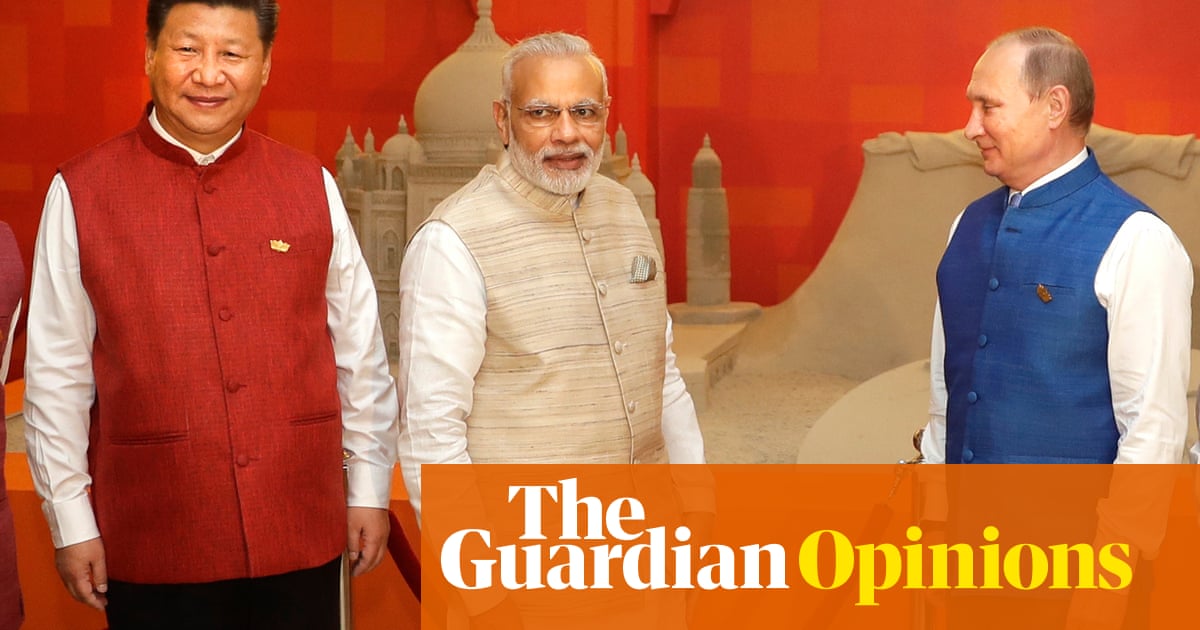
With every passing day, the worrying feeling that the Cold War has returned is becoming an alarming reality. Relations between the US, and the West in general, with Russia are deteriorating. In addition, Washington and Beijing are on a collision course.
The Trump administration’s decision to withdraw from the 1987 Intermediate-range Nuclear Forces Treaty (INF) is another chilling reminder of the confrontational slippery slope the entire world is being pushed toward by its main nuclear power.
When Ronald Reagan and Mikhail Gorbachev signed the treaty in December 1987, relations between their countries were in a post-Cold War honeymoon period. The era of Perestroika and Glasnost had led to a process of sobering up from the notion that an arms race, especially a nuclear one, was the answer to collective security. Those were days of hope (and for some, glory) but also of the illusion that international affairs would in future be conducted solely through diplomacy and negotiation.
Fast forward three decades and the international community is in its one of its most adversarial phases since the end of the Second World War. International powers are at loggerheads on almost every issue of consequence.
The INF treaty, which banned land-launched nuclear and conventional missiles with ranges of 310 to 3,420 miles, is regarded as a pillar of international security and stability, particularly in Europe. Moreover, the treaty is uniquely significant in that it banned a whole category of nuclear missiles, which was unprecedented.
In terms of nuclear deterrence, the return of these missiles presents the world with a nightmare scenario: It leaves America’s main allies in Europe and elsewhere vulnerable to a surprise attack and, consequently, exposed to Russian political influence, if not blackmail. It also reinforces an atmosphere of insecurity and distrust at a time when relations between Washington, Moscow and Beijing are at a critically low ebb.
Almost two years of the Trump administration have revealed a pattern of policymaking, and the way it has approached the INF treaty is perfectly in keeping with this. Washington’s concerns regarding certain pertinent international issues are legitimate and anchored in realities — but such complexities cannot be properly addressed by the superficial solutions it is offering.
Trump’s responses are not only superficial but also short on detail, retaliatory and punitive in nature, and attention seeking, while neglecting entirely the likelihood of grave unintended consequences.
The value of quiet diplomacy, and its better chances of succeeding with foreign-policy objectives, is being sacrificed to score points with the president’s domestic support base. Instead of defusing an explosive situation, both literally and figuratively, Trump inflames and exacerbates such issues, which need to be dealt with assertively but also delicately.
US concerns about Russian violations of the INF treaty predate the current administration and, to be sure, Moscow needs to be challenged on this.
Yossi Mekelberg
US concerns about Russian violations of the INF treaty predate the current administration and, to be sure, Moscow needs to be challenged on this. Since 2014, Washington has been adamant that the Russians have, in breach of the deal, developed a new medium-range missile called the Novator 9M729, which would enable them to launch a nuclear strike at NATO countries within minutes.
However, Trump has departed from the more cautious approach to this adopted by President Barack Obama. The latter warned the Russians against violating the agreement but did not withdraw from the treaty, because he knew that its collapse would allow Moscow, which has denied any breach of the treaty, to move ahead full throttle with the development and deployment of such missiles.
Russia’s violations of the treaty, which have been consistent with its aggressive demeanor and general disregard for international law under Vladimir Putin, are a source of grave concern for many countries. Nevertheless, a complete withdrawal by Washington from the INF treaty places the blame for killing it off squarely on the shoulders of the US. It also gives the Russians the green light to openly develop and deploy this type of weaponry, which risks a return of the threat of medium-range nuclear missiles in the heart of Europe.
There is no suggestion that Russia intends to launch a nuclear attack; however, having such missiles in close proximity to its rivals could be, and probably would be, used as a warning to those who criticize Russia or try to impose sanctions in an attempt to stop, or at least hinder, Moscow’s aggressive and expansionist agenda.
On the other hand, there is very little advantage in pulling out of the treaty, as Russia has no concrete or immediate plans to deploy such weaponry. This being the case, Trump’s tough stance is no more than an empty gesture that benefits Moscow while making America’s European allies more, not less, vulnerable to Russia’s whims.
Sigmar Gabriel, until recently Germany’s foreign minister, summed up the European fears over the termination of the INF treaty by warning that it would “again turn us in Central Europe, and here in Germany, into a venue for nuclear madness.”
What is ultimately at stake is much greater than simply the INF treaty itself: It is the possible unraveling of the entire system of arms control put in place to curb nuclear competition during, and in the aftermath of, the Cold War.
Is it not time to return to behind-the-scenes diplomacy to avert this threat, before it is too late? In the current circumstances, unilateralism will probably result in an accelerated nuclear arms race with no obvious winners — and potentially many losers.
Yossi Mekelberg is a professor of international relations at Regent’s University London, where he is head of the International Relations and Social Sciences Program. He is also an associate fellow of the MENA Program at Chatham House. He is a regular contributor to the international written and electronic media. Twitter: @YMekelberg
Disclaimer: Views expressed by writers in this section are their own and do not necessarily reflect Arab News" point-of-view












